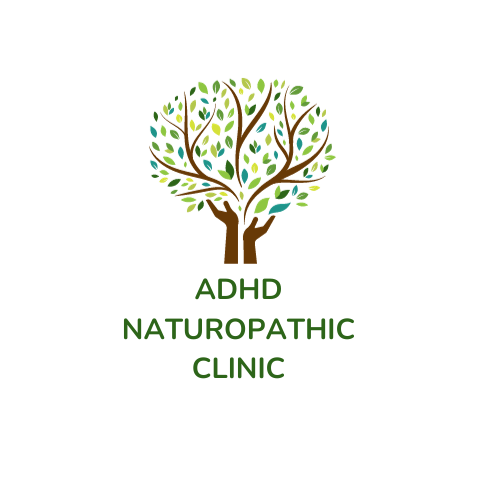
Premenstrual Dysphoric Disorder (PMDD) and Attention Deficit Hyperactivity Disorder (ADHD) are two distinct conditions that primarily affect women, yet they share some commonalities in symptoms and interactions. Understanding the link between these conditions can provide valuable insights into managing symptoms and improving overall well-being. In this blog, we'll delve into what PMDD and ADHD are, explore their similar symptoms, discuss how they can affect each other, and highlight herbal support options to alleviate symptoms.
What is PMDD? Premenstrual Dysphoric Disorder (PMDD) is a severe form of premenstrual syndrome (PMS) characterized by significant mood disturbances and physical symptoms that occur in the luteal phase of the menstrual cycle. Women with PMDD experience intense emotional and physical symptoms that interfere with daily functioning, affecting relationships, work, and overall quality of life.
Common symptoms of PMDD include:
- Severe mood swings
- Irritability or anger
- Depressed mood
- Anxiety or tension
- Fatigue or low energy
- Changes in appetite or food cravings
- Sleep disturbances
- Physical symptoms like bloating, breast tenderness, and headaches
What is ADHD? Attention Deficit Hyperactivity Disorder (ADHD) is a neurodevelopmental disorder characterized by persistent patterns of inattention, hyperactivity, and impulsivity that significantly impair functioning in multiple settings, such as school, work, and social relationships. While often diagnosed in childhood, ADHD can persist into adulthood, presenting unique challenges for women in managing daily responsibilities and relationships.
Common symptoms of ADHD include:
- Inattention: Difficulty sustaining attention, organizing tasks, and following through on instructions
- Hyperactivity: Restlessness, fidgeting, and difficulty staying seated
- Impulsivity: Acting without thinking, interrupting others, and difficulty waiting turns
Similar Symptoms: While PMDD and ADHD are distinct conditions, they share several overlapping symptoms, which can complicate diagnosis and treatment:
- Mood disturbances: Both PMDD and ADHD can cause mood swings, irritability, and emotional dysregulation, leading to difficulty managing emotions and interpersonal relationships.
- Impulsivity: Impulsive behaviours, such as excessive spending, binge eating, or risky decision-making, can occur in both conditions, contributing to impaired functioning and self-esteem issues.
- Attention and concentration difficulties: Women with PMDD may experience cognitive symptoms similar to those seen in ADHD, such as difficulty focusing, forgetfulness, and disorganization, especially during the luteal phase of the menstrual cycle.
How PMDD and ADHD Interact: The relationship between PMDD and ADHD is complex and multifaceted. While research on their interaction is limited, several factors may contribute to their co-occurrence and exacerbation of symptoms:
- Hormonal fluctuations: Fluctuations in estrogen and progesterone levels throughout the menstrual cycle can influence neurotransmitter activity in the brain, potentially exacerbating ADHD symptoms in women with PMDD.
- Executive dysfunction: Both PMDD and ADHD are associated with executive function deficits, including difficulties with planning, organization, and impulse control, which can exacerbate symptoms and impair daily functioning.
- Stress and emotional dysregulation: Women with ADHD may be more susceptible to stress and emotional dysregulation, which can exacerbate PMDD symptoms during the luteal phase of the menstrual cycle.
Herbal/Supplement Support for PMDD and ADHD: While conventional treatments for PMDD and ADHD may include medications and therapy, many women seek complementary and alternative approaches, such as herbal remedies, to alleviate symptoms and improve overall well-being. Here are some herbs, supplements, and tissue salts that may offer support for PMDD and ADHD:
- Chaste Tree Berry (Vitex agnus-castus): Known for its hormonal balancing properties, chaste tree berry may help regulate menstrual cycles and alleviate PMDD symptoms, such as mood swings and irritability.
- John's Wort (Hypericum perforatum): This herbal remedy has antidepressant properties and may help improve mood and reduce symptoms of anxiety and depression associated with PMDD and ADHD.
- Omega-3 fatty acids: Fish oil supplements containing EPA and DHA have been shown to support brain health and may help reduce symptoms of ADHD, including inattention and hyperactivity.
- Magnesium: Magnesium supplementation may help alleviate PMS and PMDD symptoms, such as bloating, breast tenderness, and mood disturbances, by promoting relaxation and reducing muscle tension.
- Tissue salts: Tissue salts like Natrum muriaticum (Nat mur) and Kalium phosphoricum (Kali phos) may help restore mineral balance in the body and alleviate symptoms of emotional and physical exhaustion associated with PMDD and ADHD.
PMDD and ADHD are distinct conditions that can significantly impact the lives of women, often overlapping in symptoms and interactions. By understanding the link between these conditions and exploring complementary approaches like herbal support, women can better manage symptoms and improve their overall quality of life.
At the ADHD Naturopathic Clinic, we understand the significant impact that PMDD and ADHD symptoms can have on women's lives, affecting their emotional well-being, relationships, and daily functioning. Our clinic specializes in providing comprehensive testing and personalized treatment plans to address the root causes of these conditions and alleviate symptoms effectively. Through advanced testing methods, including genetic testing, hormonal assessments, and comprehensive health evaluations, we can gain valuable insights into the underlying factors contributing to PMDD and ADHD symptoms in each individual."
"Our team of experienced practitioners combines expertise in herbal medicine, functional medicine, and naturopathy to offer tailored treatment approaches that address the unique needs of each patient. Whether it's balancing hormones, supporting neurotransmitter function, or addressing nutritional deficiencies, we utilize a holistic approach to promote optimal health and well-being. By incorporating herbal remedies, supplements, lifestyle modifications, and personalized therapies, we strive to empower women to regain control over their symptoms and achieve a better quality of life. If you're struggling with PMDD or ADHD symptoms, we invite you to schedule an appointment with us to begin your journey toward holistic healing and wellness.

